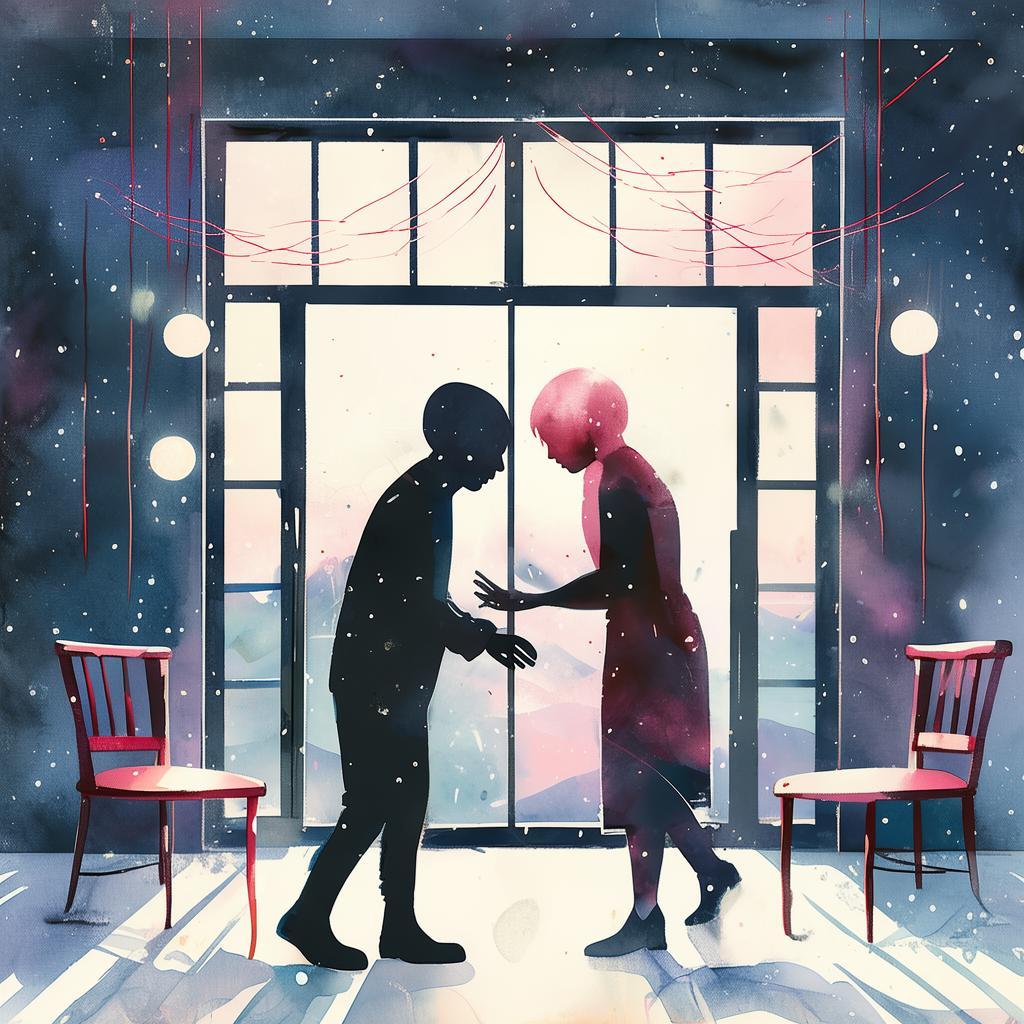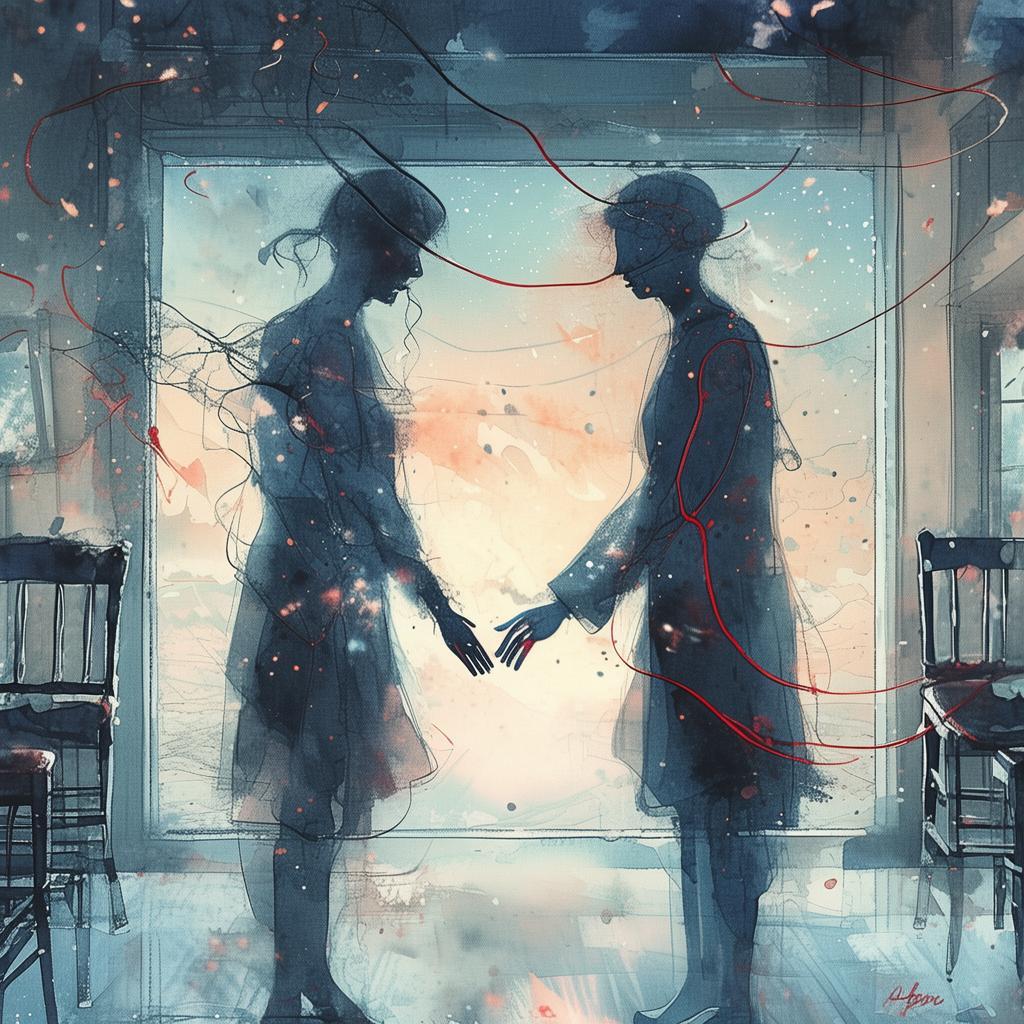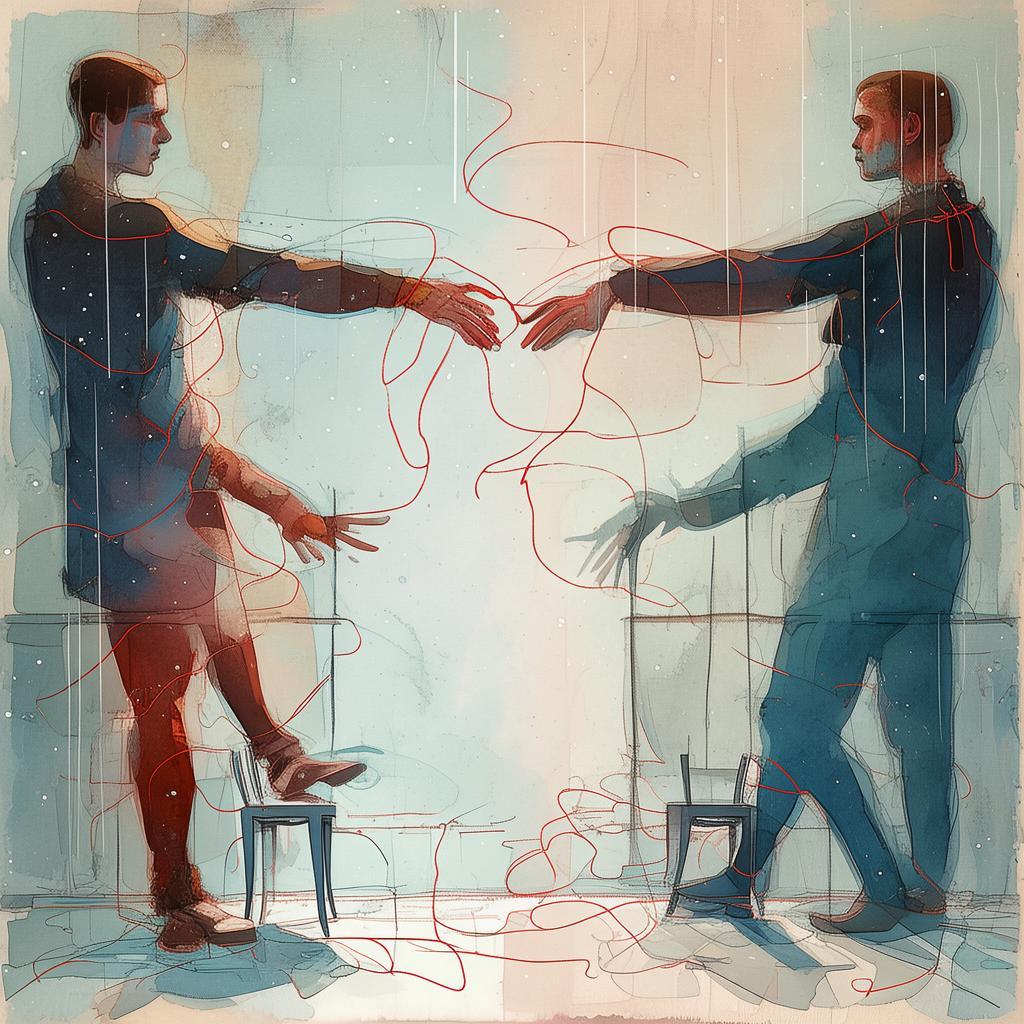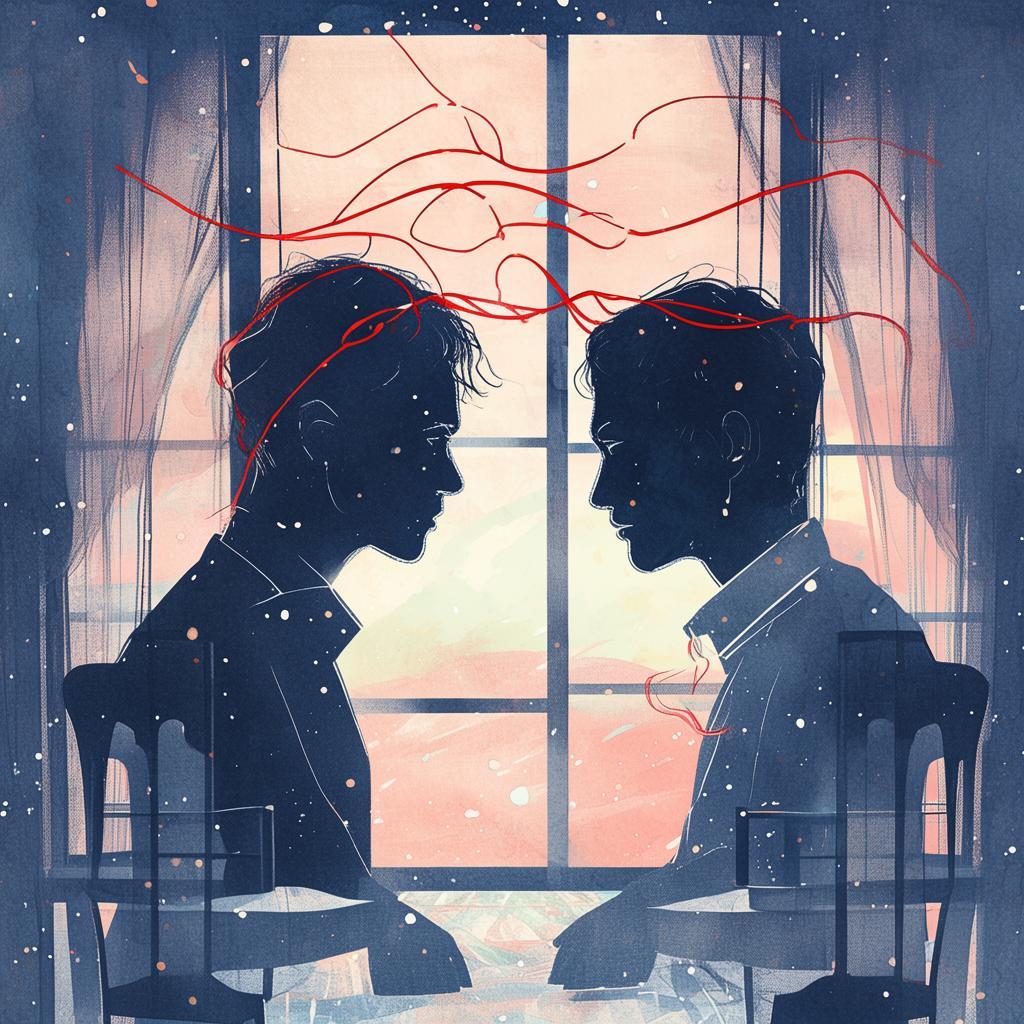The Lyrical Lament of the Southern Court
In the heart of the Southern Palace, where the echoes of the past mingled with the whispers of the future, two young men, Jin and Ming, were bound by a love that defied the very walls that confined them. Jin, a master of the guqin, a traditional Chinese musical instrument, was a man of poise and elegance, his fingers dancing across the strings with a grace that spoke of his soul. Ming, a virtuoso of the pipa, a four-stringed lute, was a man of fiery passion, his melodies as fiery and unpredictable as the flames that danced in his eyes.
Their music was a symphony of their souls, a harmonious blend that echoed through the halls of the palace, a testament to their shared passion for art and love. Yet, as with all things in the grand tapestry of life, fate had woven a more complex pattern, and their love was not to be so easily contained.
The Southern Palace was a place of beauty and intrigue, but it was also a place of power struggles and hidden agendas. The Emperor, a man of great ambition and a love for the arts, had a penchant for favoring those who could please him with both their talent and their beauty. Among these favorites was the young and dashing courtier, Wei, whose charm and intellect were matched only by his talent for manipulation.
Wei had noticed Ming's talent and, seeing an opportunity to gain favor with the Emperor, he had woven a web of deceit, presenting Ming as his protégé and, in doing so, securing his own place in the Emperor's court. Little did he know that his actions would unravel the delicate balance of Jin and Ming's love.
As the days turned into weeks, and the music of the guqin and pipa filled the air, the triangle of Jin, Ming, and Wei became more pronounced. Jin, a man of honor and principle, could not bear the thought of Ming being used as a pawn in someone else's game. He sought to confront Wei, but Ming, ever the loyal student, pleaded with him to reconsider, for he feared that his love for Jin might be the very thing that drove a wedge between them.
The conflict came to a head during the annual Festival of Echoing Harmony, a celebration of music and love that brought together the most talented musicians from across the land. It was here that Wei revealed his true intentions, offering Ming a place in the Emperor's court, a place that would bring him wealth and prestige, but at the cost of his love for Jin.
Ming, torn between his loyalty to his teacher and his own desire for a future that promised comfort and security, found himself at a crossroads. Jin, watching the love of his life being lured away by the siren song of ambition, felt a pain so deep that it threatened to consume him. He knew that he must act, not only for his own sake but for Ming's as well.

In a dramatic turn of events, Jin confronted Wei on the eve of the Festival, demanding that he release Ming from his control. Wei, a man who thrived on power, was not to be deterred so easily. He revealed his true colors, his words a torrent of lies and deceit, designed to turn the Emperor against Jin.
The night of the Festival was a whirlwind of emotions. Ming, torn between his love for Jin and the promise of a future with Wei, made a choice that would change his life forever. He chose Jin, his heart and soul, over the glittering prizes of wealth and power.
As the music of the guqin and pipa filled the air, Ming stood by Jin's side, his pipa strings plucked in a final act of defiance against Wei's manipulations. The Emperor, moved by the purity of their love and the strength of their resolve, decreed that Ming would remain with Jin, and that their music would be the voice of the Southern Palace.
The Festival of Echoing Harmony ended with a new beginning. Jin and Ming's love, once threatened by the machinations of a cunning courtier, was now celebrated as a beacon of hope and unity. Their music, a testament to the power of love and the resilience of the human spirit, echoed through the Southern Palace, a reminder that even in the darkest of times, there is always a light to guide us.
The Lyrical Lament of the Southern Court was not just a story of love and loss, but a tale of courage and the enduring power of art to transcend the trials of life. It was a story that would be told for generations, a reminder that in the face of adversity, the human spirit could triumph, and love, in all its forms, was a force to be reckoned with.
✨ Original Statement ✨
All articles published on this website (including but not limited to text, images, videos, and other content) are original or authorized for reposting and are protected by relevant laws. Without the explicit written permission of this website, no individual or organization may copy, modify, repost, or use the content for commercial purposes.
If you need to quote or cooperate, please contact this site for authorization. We reserve the right to pursue legal responsibility for any unauthorized use.
Hereby declared.









